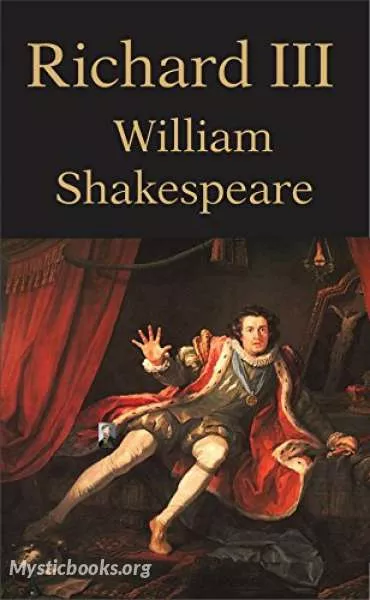
Richard III
'Richard III' Summary
The play begins with Richard (Gloucester) describing the re-accession to the throne of his brother, King Edward IV of England, eldest son of the late Richard, Duke of York (implying the year is 1471):
Now is the winter of our discontent
Made glorious summer by this sun of York;
And all the clouds that lour'd upon our house
In the deep bosom of the ocean buried.
Richard is an ugly hunchback, "rudely stamp'd", "deformed, unfinish'd", cannot "strut before a wanton ambling nymph", and says he is "determined to prove a villain / And hate the idle pleasures of these days." Through a prophecy, that "G of Edward's heirs the murderer shall be", he has contrived to have his brother Clarence conducted to the Tower of London (the king interpreted the prophecy as George of Clarence). Speaking to Clarence en route, Richard blames the queen and says that he will himself try to help Clarence. Richard continues plotting:
I'll marry Warwick's youngest daughter.
What, though I kill'd her husband and her father?
Lady Anne attends the corpse of Henry VI with Trestle and Berkeley going from St Paul's Cathedral. She bids them set down the "honourable load" then laments. Richard appears, and Lady Anne says that "Henry's wounds [...] bleed afresh". He confesses the murder, and she spits at him. He offers himself to her sword, but she drops it. He offers to kill himself at her order, but she accepts his ring. Richard exults at having won her over so and tells the audience that he will discard her once she has served his purpose.
The atmosphere at court is poisonous. The established nobles are at odds with the upwardly mobile relatives of Queen Elizabeth, a hostility fueled by Richard's machinations. Queen Margaret, Henry VI's widow, returns, though banished, and she warns the squabbling nobles about Richard, cursing extensively. The nobles, all Yorkists, unite against this last Lancastrian and ignore the warnings.
Richard orders two murderers to kill Clarence in the tower. Clarence relates a distressing dream to his keeper before going to sleep. The murderers arrive with a warrant, and the keeper relinquishes his office. While the murderers are pondering what to do, Clarence wakes. He recognises their purpose and pleads with them. Presuming that Edward has offered them payment, he tells them to go to Gloucester, who will reward them better for having kept him alive. One of the murderers explains that Gloucester hates him and sent them. Pleading again, he is eventually interrupted by "Look behind you, my lord" and stabbing (1478).
The compacted nobles pledge absent enmities before Edward, and Elizabeth asks Edward to receive Clarence into favour. Richard rebukes her, saying: "Who knows not that the gentle duke is dead?". Edward, who has confessed himself near death, is much upset by this news and led off. Richard blames those attending Edward. Edward IV soon dies (1483), leaving Richard as Protector. Lord Rivers, Lord Grey, and Sir Thomas Vaughan, have been imprisoned. The uncrowned Edward V and his brother are coaxed (by Richard) into an extended stay at the Tower of London.
Assisted by his cousin Buckingham, Richard mounts a campaign to present himself as the true heir to the throne, pretending to be a modest and devout man with no pretensions to greatness. Lord Hastings, who objects to Richard's accession, is arrested and executed on a trumped-up charge of treason. Richard and Buckingham spread the rumour that Edward's two sons are illegitimate and therefore have no rightful claim to the throne, and they are assisted by Catesby, Ratcliffe, and Lovell. The other lords are cajoled into accepting Richard as king despite the continued survival of his nephews (the Princes in the Tower).
#Richard asks Buckingham to secure the death of the princes, but Buckingham hesitates. Richard then recruits Sir James Tyrrell who kills both children. When Richard denies Buckingham a promised land grant, Buckingham turns against Richard and defects to the side of Henry, Earl of Richmond, who is currently in exile. Richard has his eye on Elizabeth of York, Edward IV's next remaining heir, and poisons Lady Anne so he can be free to woo the princess. The Duchess of York and Queen Elizabeth mourn the princes' deaths. Queen Margaret meets them. As predicted, Queen Elizabeth asks Queen Margaret for help in cursing. Later, the Duchess applies this lesson and curses her only surviving son before leaving. Richard asks Queen Elizabeth to help him win her daughter's hand in marriage. She is not taken in by his eloquence, and stalls him by saying that she will let him know her daughter's answer in due course.
The increasingly paranoid Richard loses what popularity he had. He faces rebellions, led first by Buckingham and subsequently by the invading Richmond. Buckingham is captured and executed. Both sides arrive for a final battle at Bosworth Field. Prior to the battle, Richard is sleeping and visited by the ghosts of his victims, each telling him to "Despair and die". They likewise attend and wish victory on Richmond. Richard wakes, screaming "Jesus", then realises that he is all alone and cannot even pity himself.
At the Battle of Bosworth Field (1485), Lord Stanley (who is also Richmond's stepfather) and his followers desert Richard, whereupon Richard calls for the execution of George Stanley, hostage and Lord Stanley's son. But this does not happen, as the battle is in full swing, and Richard is at a disadvantage. Richard is unhorsed on the field, and cries out, "A horse, a horse, my kingdom for a horse". Richmond kills Richard, and claims the throne as Henry VII.
Book Details
Authors
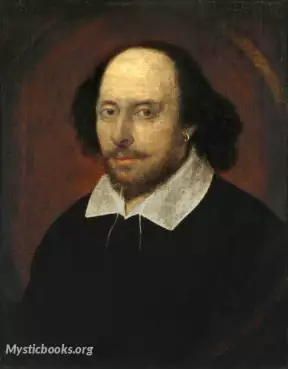
William Shakespeare
United Kingdom
William Shakespeare was born on April 23, 1564, in Stratford-upon-Avon. The son of John Shakespeare and Mary Arden, he was probably educated at the King Edward VI Grammar School in Stratford, where he...
Books by William ShakespeareDownload eBooks
Listen/Download Audiobook
Related books

Schnee by Alexander Lange Kielland
The novel explores the conflict between tradition and modernity, and the tension between personal desires and familial expectations. It is a story of...
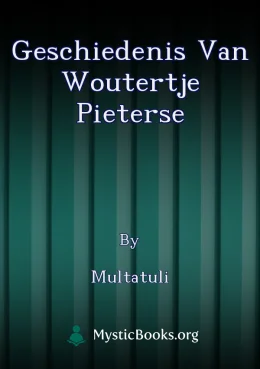
Geschiedenis van Woutertje Pieterse by Multatuli
Geschiedenis van Woutertje Pieterse is een komisch-dramatische roman van Multatuli. Het boek beschrijft de jeugd van de dromerige en poëtische Wouter...
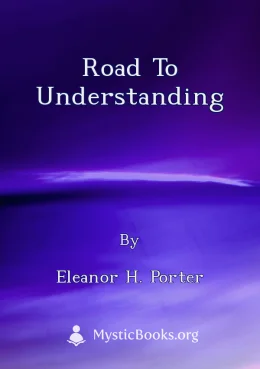
Road to Understanding by Eleanor H. Porter
Eleanor H. Porter's *Road to Understanding* is a poignant tale exploring the complexities of family dynamics, societal pressures, and the search for s...

Simple Story by Elizabeth Inchbald
Simple Story by Elizabeth Inchbald follows Miss Milner, a young woman admired for her beauty and charm, who defies social expectations by declaring he...

Stories of Troubled Marriages by Ella D'Arcy
This collection of short stories explores the complexities and challenges of troubled marriages. Written by acclaimed authors such as Conan Doyle, Gi...
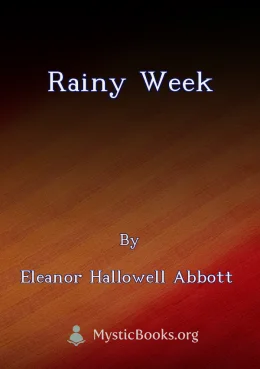
Rainy Week by Eleanor Hallowell Abbott
Rainy Week is a novel that explores the complexities of human relationships within the confines of a secluded beach house. As a group of individuals...
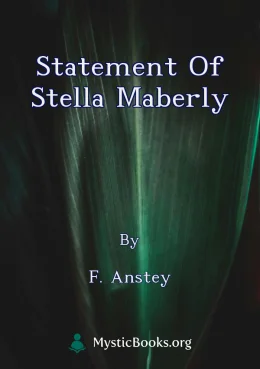
Statement of Stella Maberly by F. Anstey
Stella Maberly, a young woman with a complex and troubled personality, delivers a statement reflecting on events that have led to her current predicam...
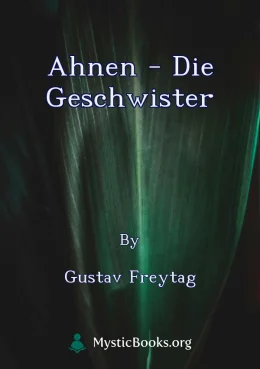
Ahnen - Die Geschwister by Gustav Freytag
Die fünfte Erzählung der Ahnen-Reihe von Gustav Freytag, "Die Geschwister", folgt den Schicksalen zweier Brüder aus der Familie König. Bernhard Georg...
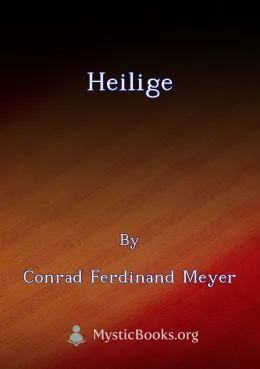
Heilige by Conrad Ferdinand Meyer
Set in 12th-century England, this historical novel tells the story of Thomas Becket, the Archbishop of Canterbury who was assassinated in 1170. The st...

undecimo comandamento by Anton Giulio Barrili
Il romanzo segue le vite di Adele Ruzzani, una giovane donna che cerca l'amore, e un zelante sottoprefetto in una tranquilla cittadina di provincia it...
Reviews for Richard III
No reviews posted or approved, yet...